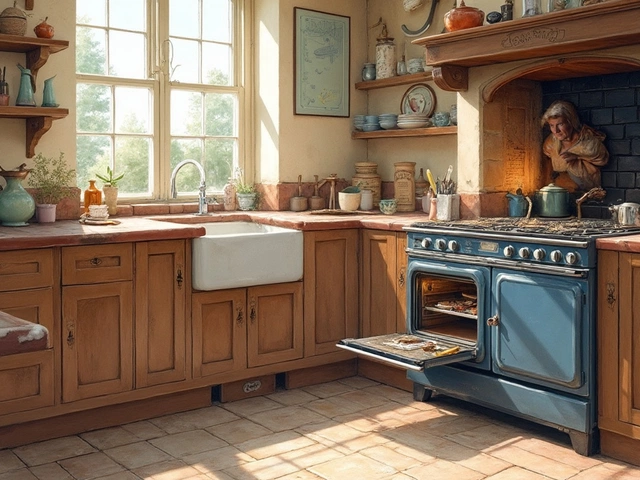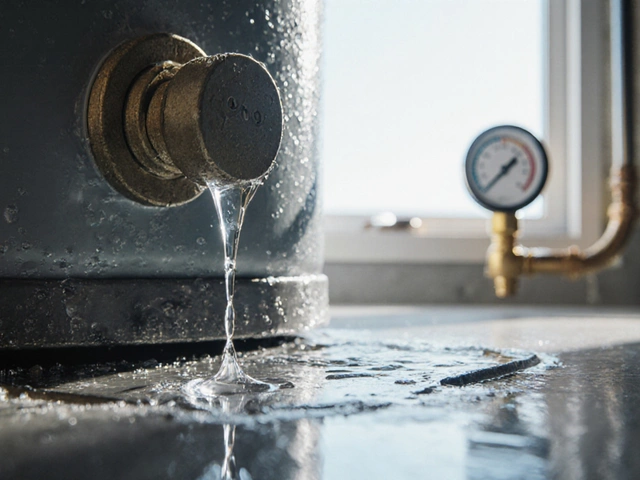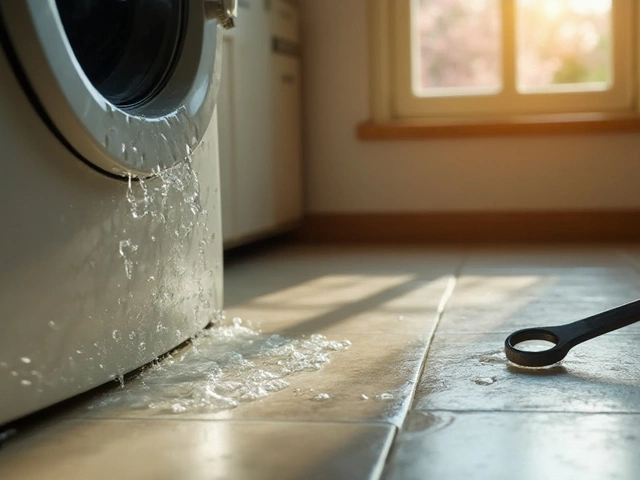Ever wonder why your fridge hums, your oven heats up, or your washing machine spins? Knowing the basic job of each appliance helps you spot problems faster and keep everything running smooth. Below you’ll get a quick rundown of the most common home gadgets, how they actually do their thing, and a few easy maintenance tricks.
Fridge: The fridge’s job is to keep food cold enough to stop bacteria. It does this with a compressor that squeezes refrigerant, a coil that releases heat, and an insulated box that holds the cold air. If the door seal is dirty or the coils are dusty, the fridge works harder and may get noisy.
Oven (electric or gas): An oven’s function is to turn electricity or gas into steady heat. In an electric oven, heating elements turn electric current into radiant heat; in a gas oven, a burner ignites fuel. Both need a thermostat to keep the temperature where you set it. A broken thermostat or a faulty element means uneven cooking.
Hob / Cooktop: Electric hobs have coil or induction elements that heat pans directly. Gas hobs use burners that mix air and gas for a flame. Keep the burners clean and check the connections – a spark that won’t fire usually means a blocked igniter or dirty gas line.
Washing Machine: The machine mixes water, detergent, and clothes, then spins to rinse and spin‑dry. A motor drives the drum, while a pump moves water in and out. Watch for leaks, odd noises, or a drum that won’t turn – they often point to a worn belt or a clogged pump.
Dryer: Dryers pull in air, heat it, and blow it through tumbling clothes. The heat comes from a heating element (electric) or a gas flame. The lint filter catches fibers; if it’s clogged, the dryer overheats and may shut off.
Dishwasher: Dishwashers spray hot water and detergent through spray arms while a pump pushes water out. A thermostat controls water temperature, and a thermostat‑controlled heating element dries the dishes at the end. A blocked spray arm or a stuck pump can leave dishes dirty.
Knowing these core functions does more than satisfy curiosity – it gives you a checklist when something goes wrong. For example, if your fridge is warm but still humming, start by cleaning the coils and checking the door seal before calling a tech.
Quick maintenance tips that work for most appliances:
When you notice a problem, try the simplest fix first – a clean filter, a tightened screw, or a reset button. If the issue persists, note the exact symptom (e.g., “oven won’t heat above 200°C”) and call a local repair service. Giving them clear details saves time and often the cost of a diagnostic visit.
Appliances are built to last, but they need a bit of love to keep doing their jobs. By understanding what each device is supposed to do and doing a little regular upkeep, you’ll enjoy fewer breakdowns, lower energy bills, and a kitchen that runs like a well‑tuned band. Got a specific question? Just ask – the right answer is usually only a quick check away.

Discover the essential roles appliances play in our daily lives and learn effective tips for maintaining their efficiency. From refrigerators to washing machines, each appliance features unique mechanics tailored for specific tasks. Grasping these functions is crucial for efficient servicing and longevity. Uncover surprising facts about how appliances work and ground yourself in practical maintenance advice to keep them running smoothly.

If your electric oven suddenly stops working, don't panic. This article explores common issues with electric ovens and provides practical tips for troubleshooting and repair. From understanding how different components work to knowing when it's time to call a professional, you'll find the go-to advice you need to get your oven back in working order. Avoid the hassle of guesswork and get straightforward guidance on keeping your kitchen running smoothly. Practical insights on oven maintenance await you.

Electric ovens are handy, but they're not immune to problems. This article breaks down the most common faults people face, from ovens not heating properly to strange noises and error codes. You’ll get real tips on troubleshooting and signs when it’s time to call in the pros. Save time (and maybe some frustration) by knowing what to look out for. Find out why your oven might let you down and how to deal with it.

Boilers, integral to any home heating system, don't last forever. Understanding their lifespan can help you plan timely maintenance and replacements to ensure efficient heating. In this article, we explore how long you can expect your boiler to serve you, what affects its longevity, and how regular care can make a difference. By understanding these aspects, homeowners can make informed decisions regarding their heating needs and avoid unexpected failures.

Water heater leaks usually come from five common spots: the pressure relief valve, anode rod, drain valve, tank corrosion, or pipe fittings. Learn where to look and how to fix it before it turns into a flood.

Washing machines are among the most used household appliances, making them prone to various problems over time. This article explores the most frequent issues like leaks, drainage problems, and strange noises. Understanding these problems can help in diagnosing issues quickly and considering effective repairs. The article also offers helpful tips to maintain your machine and keep it running efficiently for years. Simple maintenance steps can prevent most common problems from occurring.